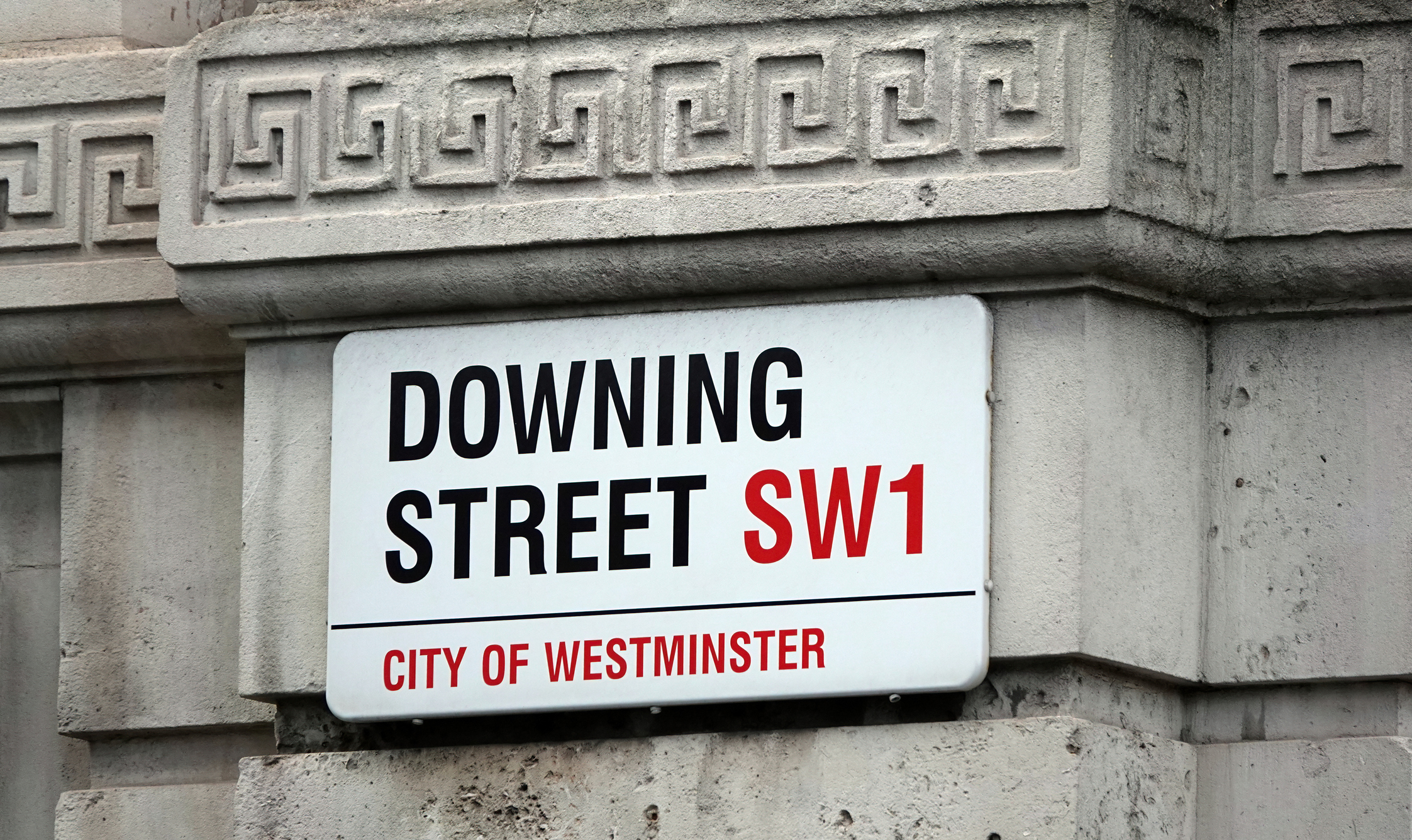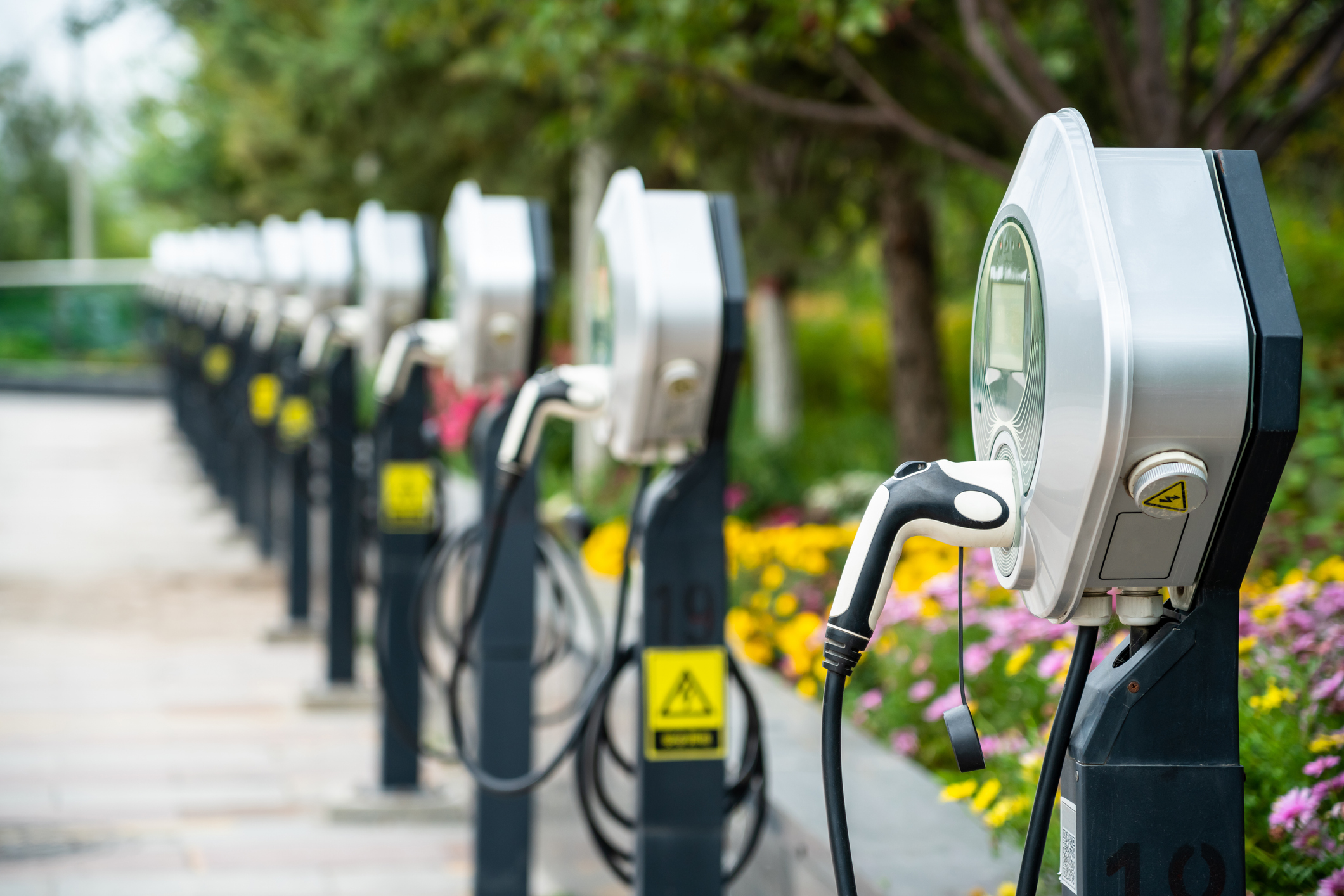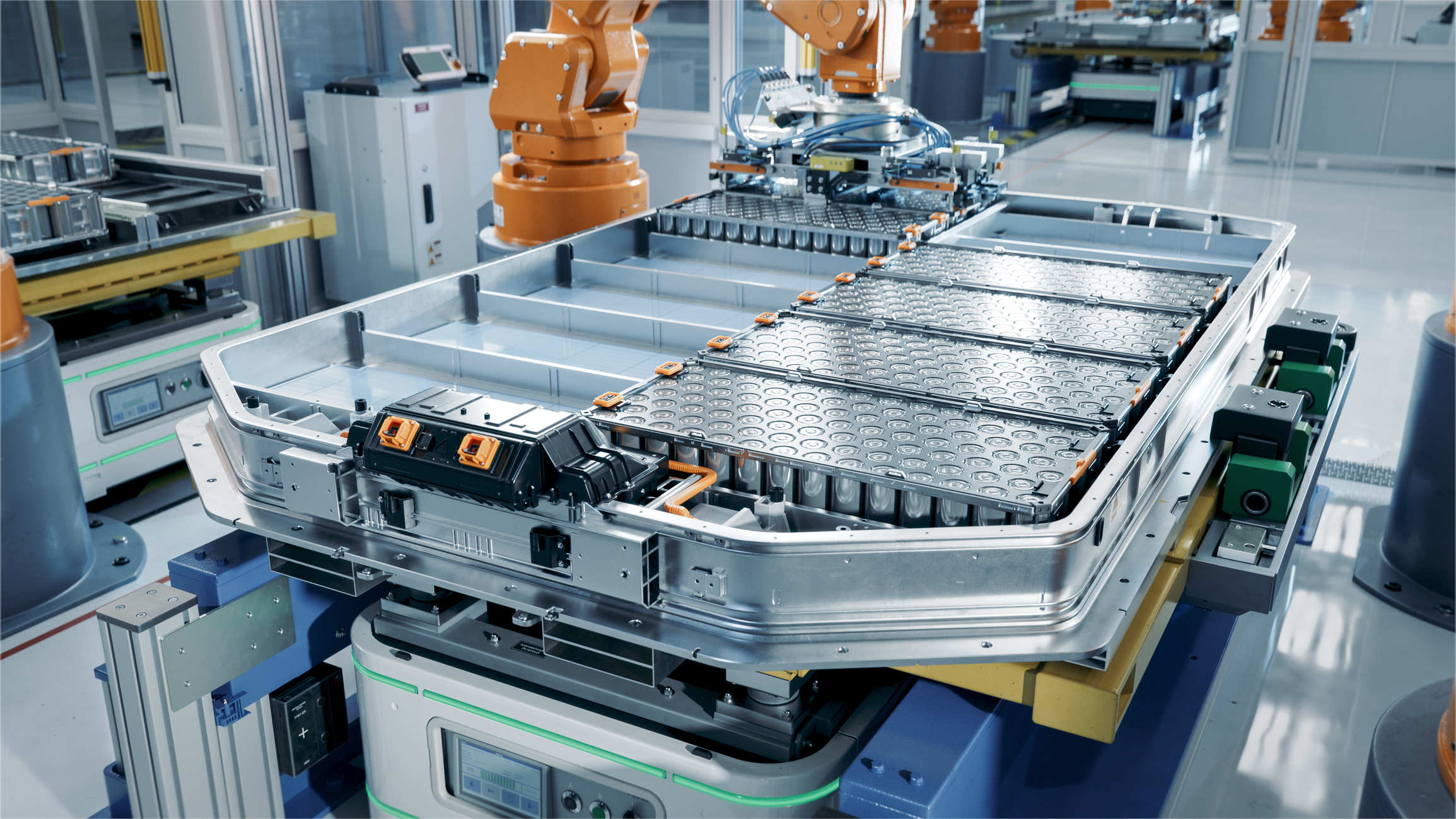What could the new Labour government mean for fleets?
Friday 5th July 2024
Last updated: 4th February 2025

After 14 years and five prime ministers, the British people have elected Sir Keir Starmer to lead a new Labour government.
Despite six weeks of campaigning, debates, manifesto launches and interviews, all we can say for sure is that a new party in power means new priorities, policies, and legislation.
With Labour’s plan for the automotive sector promising to ensure electric cars will be affordable for all and powered by cheap homegrown energy, we’ve taken a look at the pledges the Labour Manifesto made to automotive industry.
Labour Automotive Pledges:
A new road to net zero - Labour pledged to reinstate 2030 ban on ICE cars but are yet to reveal their plan for electric vans.
Improving Britain’s charging infrastructure - Commitment to cutting the red tape and making the most of the £950 million Rapid Charging Fund.
Affordable energy - A new Energy Independence Act to deliver energy security for the UK.
Driving consumer confidence in EVs - A new ‘Monroney’ style labelling requirement for EVs and standardised battery health certificates.
Resilient EV supply chains and rules of origin - Making better use of domestic resources and an International Buyers Club for critical resources.
Domestic battery manufacturing - £1.5bn from the new National Wealth Fund towards the development of up to ten gigafactories across the UK.
Plugging the skills gap - A new Growth and Skills Levy to ensure we have the extra 5,000+ EV technicians needed by 2032.
Improving Britain’s roads - A new National Infrastructure and Service Transformation Authority to govern infrastructure projects and some big plans for potholes.
Full expensing on leased assets - Labour to stick with some Conservative plans, but the future for leased cars needs clarifying.

A new road to net zero
While the need to decarbonise road transportation is supported on all sides of the House, opinions vary on the best way to achieve that goal.
When Rishi Sunak pushed the ban on selling new petrol or diesel-only cars and vans back from 2030 to 2035, it was said to be a pragmatic and necessary move that would give manufacturers more time to prepare, ease the financial burden on households and fleet operators, and allow for further expansion of the UK’s charging infrastructure.
Labour disagrees, stating that ‘the decision to water down the 2030 phase out of petrol and diesel vehicles is a huge setback for manufacturers who will have spent enormous amounts of money and time on the basis of these targets’ and that ‘a Labour government would work with industry to proceed with hitting those targets’.
The Labour Party manifesto makes a clear pledge to restore the phase-out date of 2030 for new cars with internal combustion engines. However, it’s interesting to note that there is no mention of vans, which could mean they want to keep their options open should they judge that the van market is simply too far behind and cannot hope to have a wide enough range of operationally viable vehicles within the next five years.
The Labour manifesto makes no mention of the ZEV mandate, which came into effect on 3 January 2024. In simple terms, the mandate is a legally binding control mechanism that sets a minimum level of zero-emission vehicle sales per manufacturer for each year between now and 2030. Given that Labour has chosen to reinstate the 2030 deadline for cars, it seems likely that the mandate will remain; however, they could still change the rate at which the targets escalate.

Improving Britain’s charging infrastructure
The 2030 deadline to install 300,000 public charge points looms and Labour has pledged to accelerate the rollout of EV chargers by fully releasing and redirecting existing charge point funding, including the £950 million Rapid Charging Fund and to prioritise bids from areas where the market is yet to deliver a reliable network.
Of course, a fit-for-purpose charging infrastructure will put increased pressure on a national grid that Labour says has become ‘the single biggest obstacle to the deployment of cheap, clean power generation’. As a result, the new government pledged to remove regulatory barriers to grid expansion and speed up new connections.
Recognising the high number of delays caused by long-winded planning applications, Labour has suggested that the charge point rollout could be accelerated by removing the height restrictions that require planning permission to be sought.
Although not specifically mentioned in the manifesto, they also support open access to charge point data to help drivers easily find available places to charge.

Affordable energy
The recent energy crisis may have subsided, but securing affordable clean energy is still critical to the mass adoption of EVs. Central to this is energy independence and Labour's manifesto promises to invest heavily in wind, solar, marine, nuclear power, and green hydrogen.
A new Energy Independence Act will set out the framework for Labour’s energy and climate policies, but they have already committed to the creation of a new publicly owned company, Great British Energy, which will partner with the private sector to co-invest in new technologies and help to deliver capital-intensive and strategically important projects.
Regulation will be used to encourage smart demand management and a faster rollout of local renewable power in areas where demand is out of kilter with supply capability. There are also plans to empower a Future Systems Operator (FSO) to act as a system architect, taking a more strategic view of future needs, aligning planning systems with clearly stated objectives, and working with regional Distribution Network Operators (DNOs) and local government to create local energy plans that are linked to new or existing regional and national infrastructure.
Driving consumer confidence in EVs
Over 7 million used cars were sold or exchanged in 2023, almost 120,000 of which were battery electric vehicles. However, many drivers are hesitant to buying a second-hand EV due to concerns about battery health and lifespan. In fact, 62% of drivers who say they wouldn’t buy a used EV, cite battery lifespan as the basis for their decision.
Fleet operators rely on a strong used car market in order to minimise the true cost of acquisition and Labour pledged to stimulate growth by introducing an Electric Vehicle Confident labelling requirement for all new EVs. Similar to the Monroney sticker deployed in the USA, the label would include real-life battery ranges in different settings and the expected lifespan of the battery. There are also plans for a standardised battery health certification scheme that would give buyers increased confidence and the ability to make a more informed decision.
Resilient EV supply chains and rules of origin
The recent extension to EU trade rules, which postponed ‘rules of origin’ requirements and the imposition of tariffs on EVs to the end of 2026, came as a relief to car manufacturers, fleet operators and drivers, all of whom were facing a significant rise in costs.
Speaking at the time, Novuna Vehicle Solutions managing director, Jon Lawes, said that ‘the rules had threatened to further hit vehicle production costs and dampen EV adoption’ and that ‘industry and policymakers need to focus on scaling up domestic battery capacity.
Labour’s plan for the automotive industry outlines the importance of creating a domestic source of critical resources but provides little detail on what this means in practice. It also includes the notion of setting up an international buyers’ club for critical minerals and interconnectors that would prevent companies from ‘bidding up’ commodity prices. There is also a commitment to factor in local content requirements when agreeing trade deals.

Domestic battery manufacturing
A 2022 report to Parliament by the Committee on Climate Change states that ‘if battery manufacturing gigafactories aren’t located in the UK, it is unlikely that vehicle manufacturers will manufacture EVs in the UK’.
On the other hand, a recent report by the Society of Motor Manufacturers and Traders (SMMT) suggests that this may be hyperbole given that battery electric, plug-in hybrid, and hybrid vehicles now account for nearly 40% of UK car manufacturing.
That said, the Faraday Institution estimates the UK will need ten UK-based gigafactories by 2040, each producing 20 GWh per year of batteries. To facilitate this requirement, Labour plans to use a large slice of its National Wealth Fund to part-finance these facilities and their manifesto includes a specific commitment to spend £1.5bn towards the development of new gigafactories, with a target of attracting three pounds of private investment for every one pound of public spending.

Plugging the skills gap
The number of qualified EV technicians has been growing, with 22% of vehicle technicians now qualified to work on EVs. However, the Institute of the Motor Industry is still estimating a skills gap of 5,670 technicians by 2032.
Although this is far later and smaller than previously predicted, Labour pledged to replace the Apprenticeship Levy with a more flexible Growth and Skills Levy that enables automotive businesses to access a wider range of courses and modular training. The Levy will be supported by Skills England, who will collaborate with local government, businesses, training providers and unions to ensure that the training offered is value for money and aligned with business needs.
Improving Britain’s roads
Labour plans to create a new National Infrastructure and Service Transformation Authority to set strategic infrastructure priorities and oversee the design, scope, and delivery of roadbuilding and infrastructure projects.
Of course, roads need to be driveable and with research showing that there are around six potholes per mile on council-controlled roads in England and Wales, so Labour has pledged to fix an additional one million potholes each year.
Full expensing on leased assets
As highlighted in our summary of the major parties’ pre-election manifestos, Labour has committed to retaining a permanent full expensing system for capital investment and the annual investment allowance for small businesses. At this stage, it is not yet clear whether they will honour the full expensing of leased assets that was announced in the March 2024 Budget and whether or not this would include cars.

A final word
The Labour Party manifesto, together with their previously published plans for industry, the automotive sector, clean energy and local power, contain wide-ranging commitments, ambitions and promises, all with varying levels of detail and caveats.
Whether you see the change in government as positive, negative, or somewhere in between, there is no doubt that we are going through a period of change, and we will need to wait for Labour’s first ‘fiscal event’ to get a clearer indication of their immediate priorities and associated timeframes.
Whatever the future holds, with over 40 years’ experience managing and maintaining some of the UK’s largest and most complex fleets, we will continue to design and deliver innovative business mobility solutions and a clear pathway to operating a greener, safer, more efficient fleet. To find out more about what Rachel Reeves first autumn budget consisted of, check out our fleet round up.
Speak to our expert fleet team about transforming your fleet today - just fill out our form below and we'll be in touch!

